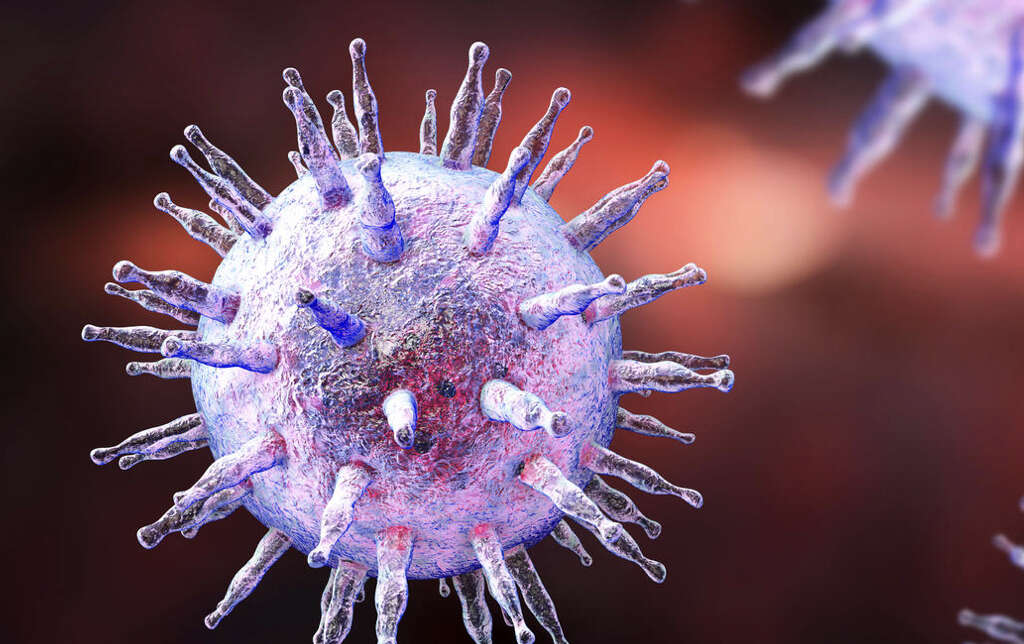What Is a Brain Infection?
Our brains are protected from disease by what is known as the blood brain barrier. This barrier helps to keep out unwanted pathogens and other unwelcome items, while also allowing essential nutrients and oxygen to pass through. As effective as this barrier is, however, unwelcome intruders will sometimes be able to get through.
If a pathogen is able to get into the brain and begin multiplying, they can cause serious problems. It can result in encephalitis, which is an inflammation of the brain. Symptoms of a brain infection typically include headaches, fever, aching joints, neurological, and mental symptoms. Brain infections are often treatable, but they can be fatal.
1. Encephalitis
A brain infection is likely to cause the organ to become inflamed in a condition known as encephalitis. There are two main types of encephalitis, primary and secondary. Primary encephalitis occurs when the brain is directly infected. It is sometimes caused by a virus that had gone dormant, only to be reactivated.
Secondary encephalitis is where the brain becomes inflamed due to an infection elsewhere in the body. In an abnormal reaction to the infection, the immune system attacks the brain’s cells and not just the infection. The two will cause the same symptoms, while there are several pathogens that are associated with primary encephalitis.
2. Enteroviruses
Enteroviruses are fairly common viruses that tend to cause only mild symptoms. There are two main types of enteroviruses, which are echoviruses and coxsackieviruses. In many cases, the patient will feel no symptoms whatsoever when infected by these viruses. When symptoms do show, the illness is often mistaken for the flu.
The coxsackievirus is responsible for hand, foot, and mouth disease, which is a mild disease that can be uncomfortable but is not usually dangerous. Infections from enteroviruses will pass without treatment in the vast majority of cases. However, they will cause serious problems in some instances, including meningitis and encephalitis.

3. Herpes Simplex Virus
The herpes simplex virus is also common, and most people will have been exposed to it at some point. There are two main types of HSV: HSV1 and HSV2. HSV1 is well known for causing oral herpes, and cold sores, and it is a highly contagious disease. It is usually harmless and will pass without treatment, although the symptoms of oral herpes can keep on returning.
HSV2 is the cause of genital herpes, which is a sexually transmitted disease. As with the oral variety, the symptoms of herpes are likely to come and go. The symptoms can be unpleasant, but are not usually serious. The herpes simplex virus can cause serious infections in some cases, however, including brain infections.
4. Epstein-Barr Virus
The Epstein-Barr virus is another variety of the herpes virus. It is responsible for the fairly common disease called mononucleosis, which is also known as mono, and the kissing disease. It is usually only mild but it will cause more serious complications for some people.
Another common variety of the herpes virus is the varicella-zoster virus. This virus is responsible for causing chicken pox. The virus will then go dormant in the body, but can later become reactivated, resulting in another disease known as shingles. Both the Epstein-Barr virus and the varicella-zoster virus will cause a brain infection in a small number of cases.

5. Rubeola
The rubeola virus is responsible for causing measles. Measles is a disease that is commonly found in children, although some adults can also get the disease. The symptoms are usually mild but the disease will be fatal in some cases, and pregnant mothers need to be particularly careful to avoid the disease.
The rubella virus causes German measles, which is similar to measles, only it tends to be milder. Regardless, it can still be dangerous and pregnant women also need to be careful of it. Both diseases were all but eliminated in developing countries thanks to vaccines, but a recent trend of not vaccinating children has seen the number of cases increase. Both can cause a brain infection in a rare number of cases.
6. Tick-Borne Pathogens
Ticks are small parasites that feed off the blood of other animals. They feed by biting through the skin into a blood vessel where they have access to the flowing blood. Some ticks will become infested with pathogens after feeding on infected animals, and can pass on the pathogen when they feed on a person.
There are numerous diseases that people can catch after being bitten by ticks. The severity of the illnesses will range from mild, to downright dangerous. Some can go on to cause long-lasting complications for some people. These diseases can result in a variety of life-threatening complications, including brain infections.

7. Mosquito-Borne Pathogens
Mosquitos are another type of parasite that is well known for feeding on people, but only the females feed on blood. Mosquitos are quite common in many parts of the world, meaning the mosquito bites are also common. As with ticks, mosquitos are sometimes infected with pathogens after feeding on an infected animal. The pathogens can also be passed on to people.
Diseases like malaria, which is caused by an infection with a tiny parasite, can be very dangerous. Indeed, malaria has killed many millions of people throughout history. Malaria, and other mosquito-borne diseases, can cause brain infections in addition to other serious complications.
8. Rabies Lyssavirus
The Rabies lyssavirus is responsible for causing the disease known as rabies. It is an extremely dangerous disease, and it will be fatal if is not treated in time. The virus can also infect other animals, and bites and scratches from infected animals is a relatively common method of transmission.
Rabies is now thankfully rare, especially in developed countries, thanks to a program of vaccination and eradication of infected animals. The disease is still found in some parts of the world, however, and travelers are advised to speak with their doctor regarding vaccinations. Rabies can cause brain infections, alongside a number of other complications that will be fatal.

9. Prevention
With so many potential causes of brain infections, it is all but impossible to prevent them altogether. However, vaccines are available that will keep us safe from many of the potential dangers. Also,
it is possible to move the odds of falling seriously considerably in your favor.
Among the most effective methods is to practice good hygiene to help prevent the spread of pathogens. It is also a good idea to take precautions against insect bites; such as wearing lose clothing and using insect repellents. If you do fall ill, you should get treatment as soon as possible to help prevent your condition from becoming serious.
10. Treatment
The treatment for a brain infection will rely on a number of factors. In many cases, the condition is not likely to be dangerous and the patient might simply be asked to get lots of rest, and drink plenty of fluids. Medication may also be prescribed to help ease the patient’s symptoms.
In other cases, antiviral medications or antibiotics may be used. Anti-inflammatories and anti-seizure medications may also be provided. Some patients will need to be put on a ventilator to help them breathe and, in the terminal cases, the patient will be treated to help make them as comfortable as possible.











